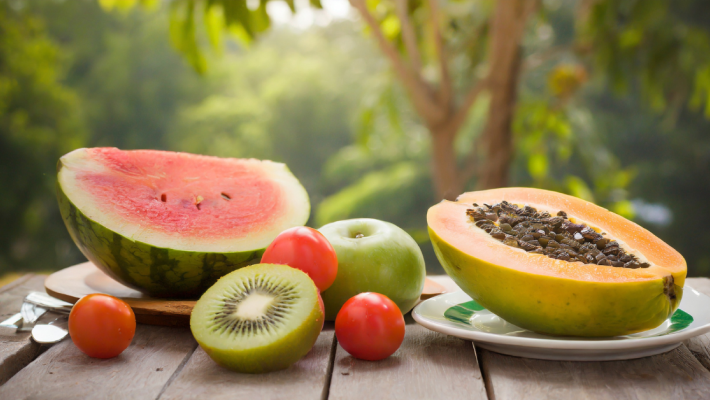Organic Fruits
Organic Fruits features Organic Fruit Seeds and Organic fruit seed varieties for full sun and well-drained soil; sow warm-season types after last frost, while temperate species may need cold stratification.
- €4,95
Sweet Organic Watermelon Crimson Sweet SeedsDiscover the delight of Organic Watermelon Crimson Sweet seeds, known for their exceptional sweetness and vibrant dark red flesh. This Citrullus lanatus variety offers a long shelf life and impressive...




















